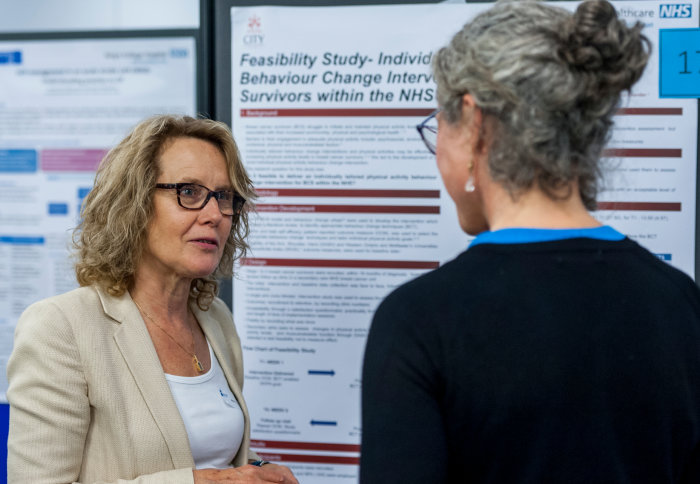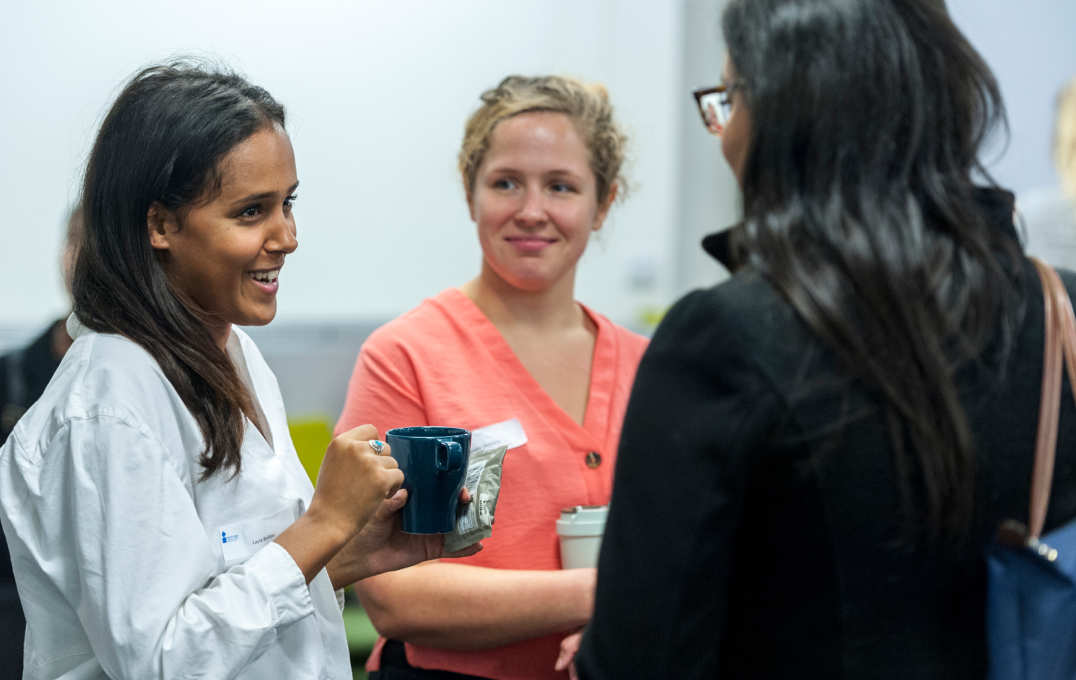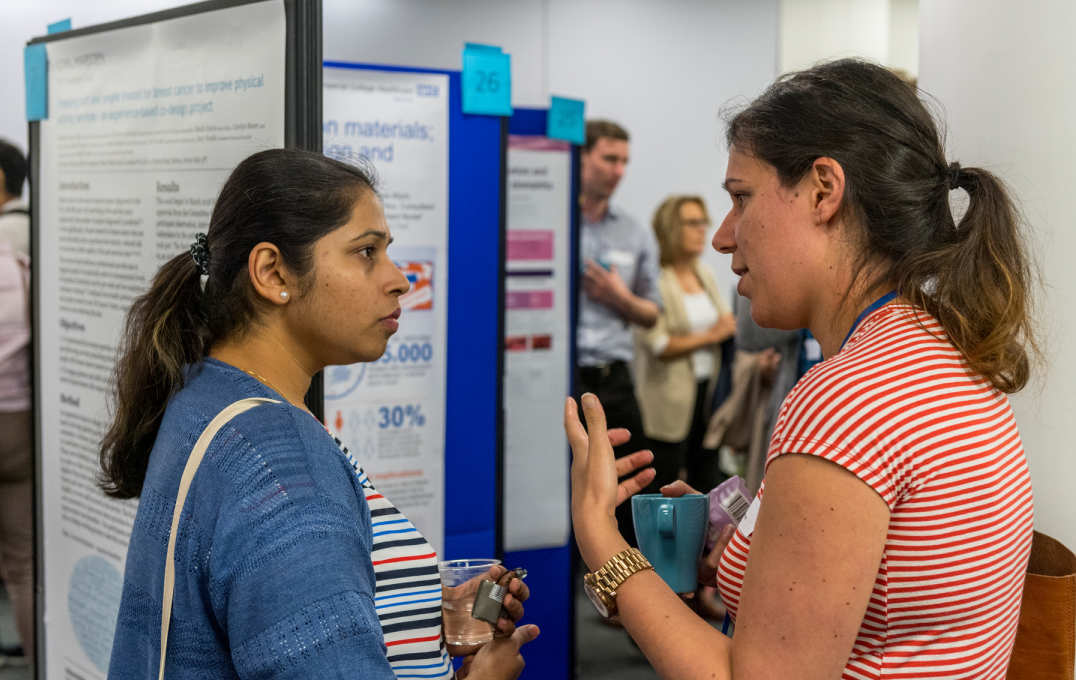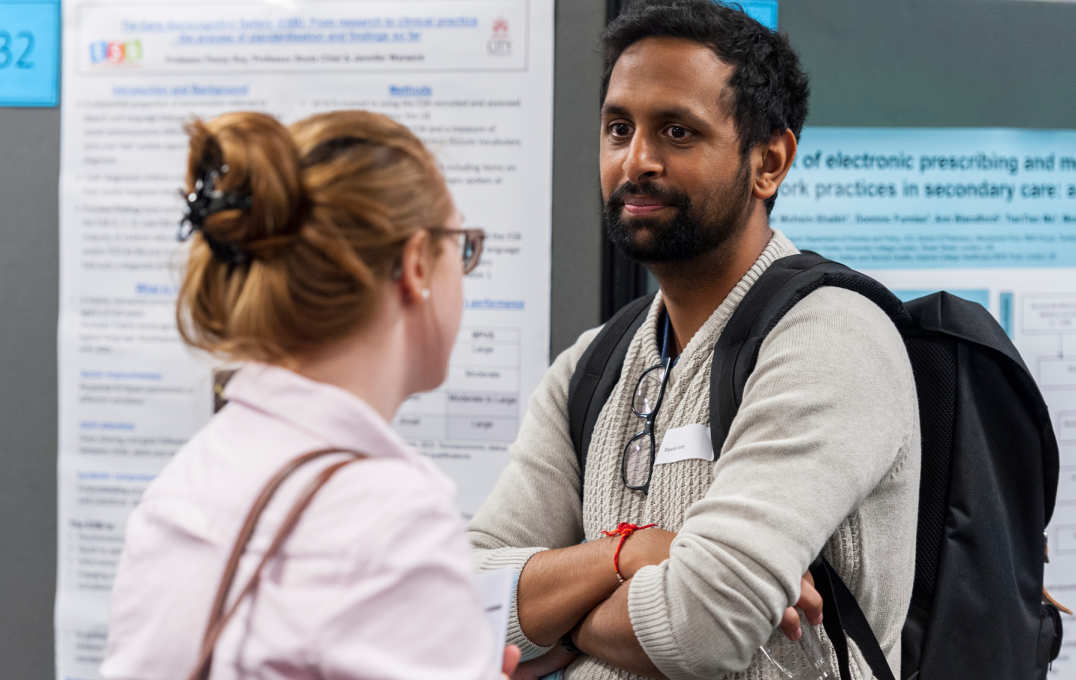Inspiring healthcare research projects showcased at Imperial Symposium
by Maxine Myers

A wide range of healthcare professionals showcased their projects to encourage others to do research.
The annual North West London Research Symposium recently took place at Imperial’s South Kensington Campus.
More than 100 delegates attended the symposium to present their research, learn more about how to pursue a research career, get advice on funding and see examples of successful research projects carried out by peers in their area.
The event was aimed at nurses, midwives, allied health professionals, pharmacists and healthcare scientists working in North West London who are interested in a research or clinical academic career.

Co-host of the event Professor Mary Wells, Professor of Practice (Cancer Nursing) and Lead Nurse for Research at Imperial College Healthcare NHS Trust, said:
“Research is vital to the NHS as it provides robust evidence to underpin practice change and helps us to deliver better patient care. As a research-intensive trust we want to encourage more clinical staff to engage in research as it will help them advance knowledge, respond to changes in the healthcare environment and deliver more effective care. I think the delegates at our event were inspired by the work carried out by their peers and I hope they will be encouraged to begin or continue their research journey.”
At the event delegates got the opportunity to view an exhibition of posters showcasing research from health professionals. This included a project to evaluate electronic prescribing systems to reduce errors in dispensing medications and monitoring patients’ voice and swallowing outcomes following surgery to treat a rare airway disorder.
Following the exhibition delegates voted for their favourite research poster and Geraldine O’Gara, Nurse Researcher at the Royal Marsden Hospital, was announced as the winner. Her project looked at different ways to provide ongoing support and guidance to women in two African countries following treatment for breast cancer to help manage the consequences of treatment and reduce the risk of the disease coming back.

Co-host of the event Dr Caroline Alexander, Adjunct Reader and Lead Clinical Academic for Therapies at the Trust added:
“This event was an opportunity to show our delegates working in a range of specialities that there are many routes and avenues to doing research. We want to break down barriers, offer support and show that research can be an integral part of clinical practice. Our speakers have clearly demonstrated excellence in their fields and I would like to see more health professionals conducting and implementing findings from their own studies.”

The keynote speaker at the event was Professor Greta Westwood, Chief Operating Officer at The Florence Nightingale Foundation. She talked about her own research career as a nurse and offered valuable advice, such as the importance of collaboration.
Delegates also had the chance to hear from others who have carried out research and learn about their experiences.
Dr Lina Johannson, Clinical Lecturer and Dietician at the Trust, was one of the speakers. She explained the importance of creating opportunities to do research within hospital trusts and how she overcame some of the challenges she faced during research studies.
Dr Donna Kennedy, Hand Therapist at the Trust, and Ruth Barker, Research Physiotherapist at the Royal Brompton Hospital were selected by a panal of judges to present their research projects on improving treatment outcomes for patients with the hand disorder carpal tunnel syndrome (CTS) and how frailty can be an indicator of mortality in older patients with a group of lung conditions known as chronic obstructive pulmonary disease (COPD). There were also workshops on preparing a fellowship application, conducting audit and implementing research findings.
The event was organised by the Clinical Academic Training Office (CATO), which delivers training and education opportunities for clinical staff as part of the Imperial College Academic Health Science Centre.
Providing education and training opportunities for clinical staff is a key mission of Imperial AHSC, a joint initiative between Imperial College London and three NHS Trusts. It aims to transform healthcare by turning scientific discoveries into medical advances to benefit local, national and global populations in as fast a timeframe as possible.
Article text (excluding photos or graphics) © Imperial College London.
Photos and graphics subject to third party copyright used with permission or © Imperial College London.
Reporter
Maxine Myers
Communications Division






